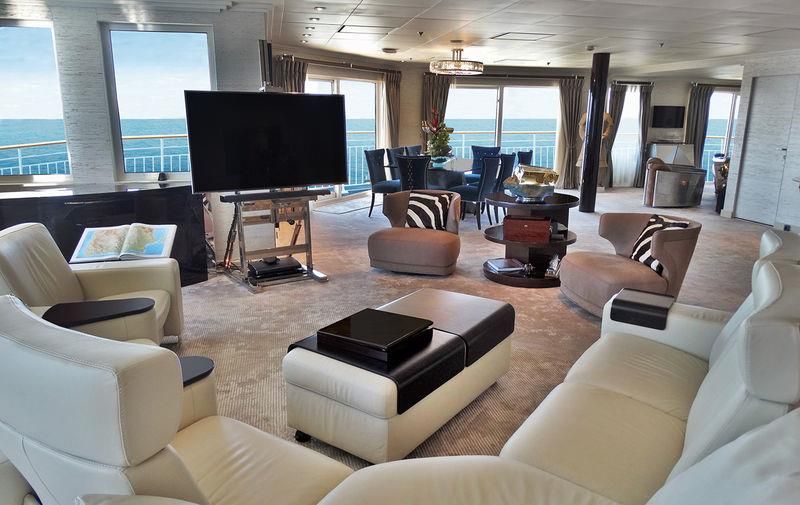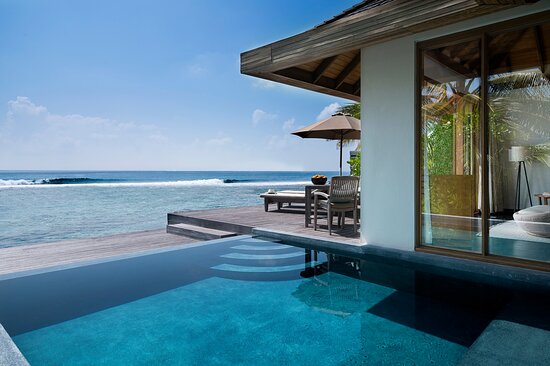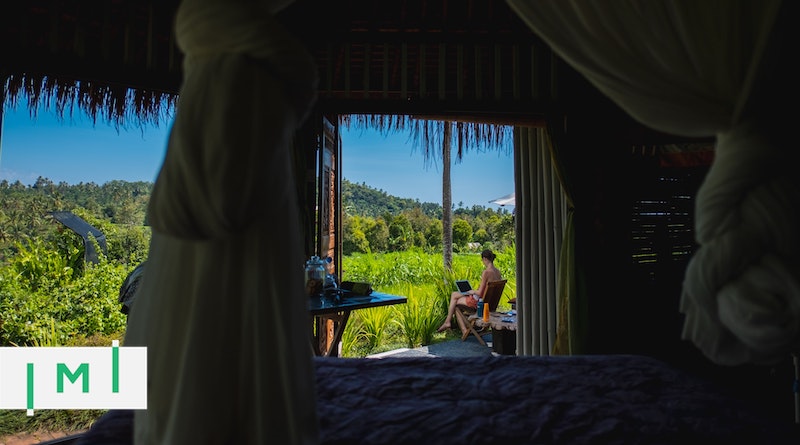“Holiday by Investment” and The Rise of Digital Nomad Visas

Due Process
With Michael Krakat
Legal Scholar Michael B. Krakat observes investment migration through the lens of international, constitutional, and administrative law.
Globalization, including the worldwide sale of citizenship and residence, has incorporated millions of migrants into a global market for membership entitlements. Persons have today joined the movements of goods, services, and capital. The need for global mobility, in response to globalization, as well as to climate change or pandemics, has become one of the most pressing issues of this century.
Migrants of the world do not form their own country. If they did, that country would arguably be one of the largest on earth (the fifth largest, as it was once estimated). Aspects of these commoditized migrations include lifestyle migrations of cosmopolitan travelers as ‘citizens of everywhere and nowhere.’ For some, the temporary life of a more or less permanent traveler may bring the decluttering and minimization of some assets, but this does not necessarily need to be the case.
As a form of temporary residence, “lifestyle migration” has developed as a way for the affluent and privileged to stay on the move, in continuous search for temporary stays, as a way of moving on a permanent basis, with varying levels of attachment (if any) to a given place. Often, of course, there are one or more permanent home bases or safe havens to which the traveler can return. Laptop work, passive income, and early retirement are included in highly individualistic patchworks of interlocking stories and identities.
Travel on passports that allow a relatively large number of visa-free entries into destinations worldwide is of great help when attempting to pull off lifestyle migration. The same must be true for diversification of political protection by one’s actual home countries effectively acting as ‘anchors’ on global journeys.
Gathering no moss
A sub-form of residence by investment (RBI) – sometimes expressed as the direct purchase of visas – may then be long-term holidays by investment (HBI).
HBI, when combined with other such programs and planned to line-up over the course of several years, could lead to a prolonged (everlasting?) holiday, following the proverbial ‘endless summer’ across seasons and times zones.
It may then well be true that temporary stays, inasmuch as they win you time, may actually act as ends, not merely means, and become the final result, beyond permanency expressed through visa or even citizenship. In other words, why not constantly be on the move, with time intervals that may be well planned?
There is merit in the temporal/temporary, especially when various temporary programs are combined: Here, it may no longer take a cynic to suggest that one’s (grand-) parents may perhaps be better placed in various holiday locations or world-cruises – private nurse included – which could be less costly than the aged care and retirement facilities in many countries.

But the temporal even has merit if only as a stage on the way to naturalization: Applicants for countries’ residency may here benefit from the limbo of waiting lists and temporary visa as such, with the progress and long road to naturalization effectively becoming a temporary safe haven.
Care must be taken here in that visa applications are often based on the intentions at the time of application, and knowledge of abortion and the utilization of processes toward the permanent for temporal purposes could be viewed as vexatious applications.
At the same time, the legal minus of temporary stages or steps within applications toward permanent residence is – pending the circumstances – often factual and legitimate instruments to spend time on country.
Likewise, temporary visitor visa or special category visa options as zero commitment and maximum outcome allow lawful presence.
Temporary status, in other words, may often suffice for a person’s actual (temporary) needs and become a permanent state only if that is desired. Lifestyle applicants, consumers of places and experiences, may often ask themselves: After how many years – or after how many memories created – do I get tired of a place become ready to move on?
The permanently temporary
There appears to be no problem with HBI where both the selling country and the migrant are clear on the mutual goals. The concept of HBI appears to be complex as it might include holiday only, as well as work-holiday lifestyle options, such as ‘working from home in a holiday location’ deals. HBI may then include anything between mere visitor status, as well as no work conditions on visitor visas waived (working permits for visitors granted) and other aspects of temporary residence under special category visas, pending the actual circumstances of the applicable law.
Antigua & Barbuda offers special residence status for two years to ‘digital nomad’ laptop workers. Barbados allows ‘working from home’ on its shores for one year. Similar programs exist for Bermuda, Estonia, and Georgia, offering remote workers the chance to experience a different way of life for a specified time.
An interesting option is what appears to be tourist visa residence by payment ‘loyalty options’, perhaps more close to the heart of holidays, absent the work component. The Maldives here offer a $30K ‘all you can stay’ holiday package at the Anantara Veli Resort in the South Male Atoll. It apparently includes the use of a two-person overwater bungalow at the private-island property for unlimited use over 2021, including breakfast and airport transfers. This then seems to tie into the countrywide loyalty program, a three-tier-tourist program called ‘Maldives Border Miles’ to debut next year, including Gold, Silver and Bronze levels that correspond with the money spent in the country, pegged to reward for frequent visitors.

Section 9 of the Maldives Immigration Act outlines that permits to remain in the Maldives include Tourist Visa (as well as Diplomatic-, Student-, Business-, Dependant-, Work-, Resident- and Special Visa). It then appears that, under s10 of that Act, Tourist visa usually go for up to 30 days, but can be extended to 90 days. However, another way to extend the stay appears to exist under s18, whereby a foreign national who has a permit to stay in the Maldives and would like to remain for a longer period than allowed in the permit may apply for an extension. Upon receipt of such an application, pursuant to Regulations, made under the Act, there is government discretion to extend it.
Presumably, examples such as these may fall under the tourist visa category. However, these prolonged stays may likewise run under the special visa without actual time limitations.
It appears that, on the example of the Maldives, HBI acts as a ‘minus’ not only to citizenship by investment (CBI) passport purchases, but also to (temporary) residence by investment (RBI). Breakfast is included, and the stay is limited to certain premises, which makes HBI something ‘less’ than RBI, a vacation by investment through the lens of certain premises offering the deal.
The potential inherent indeterminacy is here of interest, as it seems up to the visitor how long the stay should be getting extended, subject to certain caps (such as an annual cap). It may then perhaps even be open, whether the ultimate cap of a yearly stay in the hotel could itself become negotiable.
Offers such as these are potentially extendable: One could think beyond the adding of lunch, dinner, or the use of sporting and leisure equipment. Options could include travel between hotels or other places. In the logic of mercantilism, will we perhaps become able to swap between similar packages, places, and deals? An important (serious) upgrade would be some form of health-care throughout the time of stay and other options that could be added to the package, such as other insurance (including cancellation) or the later addition of family members or friends into the deal.
Healthcare itself then is perhaps one of the most pressing issues in both RBI and HBI, and it may be a good idea for those offering lifestyle migration to add such options. Health is especially an issue if one looks at the older expat generations in many of the holiday locations, some perhaps able to utilize (costly) global healthcare insurance packages (including the emergency evacuations), and others relying on locally available healthcare. Pre-Corona, when frequent flyer points somewhat demarked a way of life for many, it was often possible to change from one temporary travel-healthcare option to another as the overall travel continued.
For lifestyle migrants, travel itself and temporary residency in multiple places, even on rotation throughout the year, may even create a somewhat permanent state of affairs beyond attachments to any single place. This then could become a way of life also from the point of choosing- or leaving – one’s (previous) tax domicile.
This may in certain instances be problematic for American and Eritrean citizens, who are taxed globally based on their citizenship. Permanent traveling then appears to be an art-form, perhaps getting harder to implement, and may certainly lead to unforeseen consequences if not well planned. Global, permanent travel appears as such as mostly a legal venture in itself. Yet, the laws of each country will need to be understood and followed, including any limitations and conditions imposed on working whilst on a tourist visa, as well as in regards to taxation based requirements.
With HBI, flexibility appears to be the key, as the borders between RBI and lifestyle migration appear fluent. Some years of travel and escapism may be combined with years of more permanent residence, including the return to the urban matrix and a more settled presence in the pursuit of overall happiness. With HBI, is ownership of real estate, even passports, effectively hopelessly overrated? Do people need to actually own homes, only to again sell them along their actual, temporary journeys?
Michael B. Krakat is a lecturer and coordinator for comparative Public law – International, Constitutional and Administrative Law – at the University of the South Pacific at Vanuatu and Fiji campuses. Michael is also a researcher at Bond University – Queensland – and Solicitor at the Queensland Supreme- and the High Court of Australia. He also is an academic member of the Investment Migration Council. He can be contacted at michael.krakat@usp.ac.fj.



